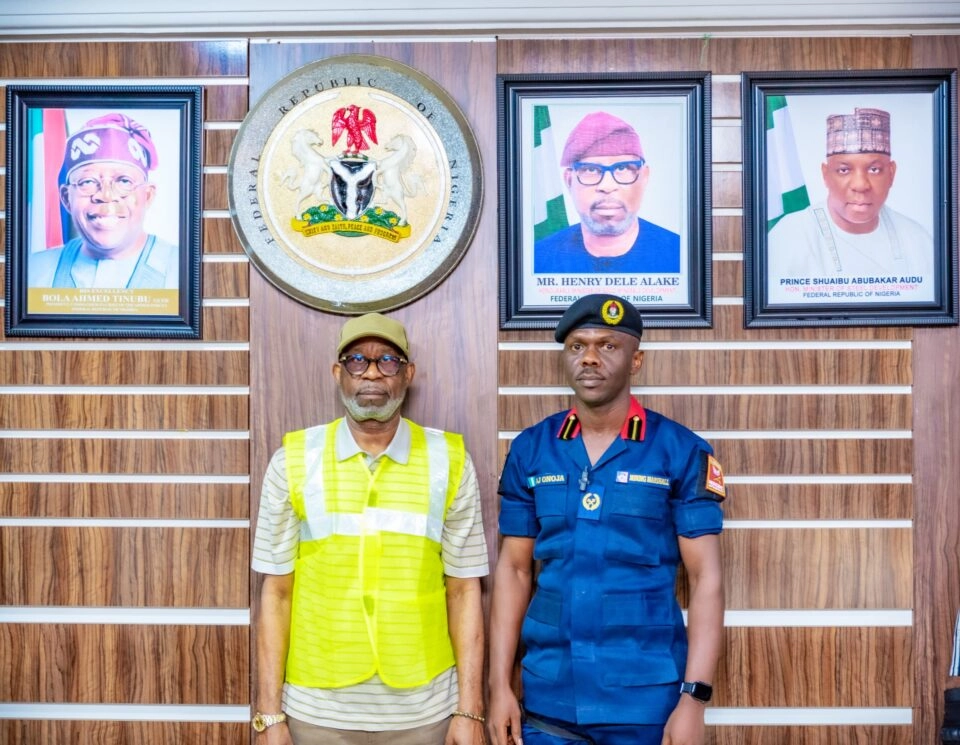
By Abdullahi O Haruna Haruspice
When the Federal Ministry of Solid Minerals Development inaugurated the Mining Marshals (MM) in 2024, it did so with an urgent mission: to sanitize Nigeria’s chaotic and corruption-ridden mining sector. Just a year later, the security outfit is under siege—not from bandits or illegal miners, but from orchestrated blackmail campaigns designed to derail their gains.
At the recently concluded Ministerial Retreat in Abuja themed “Enhancing Performance, Strengthening Accountability, and Fostering Innovation in the Solid Minerals Sector,” Minister Dele Alake broke his silence on what many have whispered in corners: that the Mining Marshals are facing an avalanche of allegations, most of them lacking substance but heavy with political and economic motive.
“There is serious pushback,” Alake declared, “from those benefiting from the status quo.” These beneficiaries—illegal operators, compromised local agents, and certain entrenched interests—are finding the environment increasingly hostile to business-as-usual, and their response has been predictable: discredit the enforcement mechanism.
The strategy? Accusations of corruption, abuse, and high-handedness—some potentially believable, most unproven. But Alake, showing the resolve that has become the hallmark of his tenure, made it clear that absent concrete evidence, the leadership of the Mining Marshals will not be sacrificed on the altar of convenience. “I will not be blackmailed,” he said unequivocally. And rightly so.
Nigeria’s mining sector has long been held hostage by a lethal cocktail of insecurity, weak enforcement, and regulatory confusion. Illegal mining is not just an economic problem—it is a national security threat. It funds criminal enterprises, robs the nation of revenue, and disincentivizes legitimate investment. If the Marshals are stepping on toes, it is because the toes needed stepping on.
This is not to say that the marshals are above scrutiny—far from it. Any credible evidence of abuse or misconduct must be investigated with urgency and impartiality. But the tendency to weaponize allegations without proof is part of a broader pattern in Nigeria’s reform journey: whenever genuine institutional reforms begin to bite, they attract the wrath of entrenched interests.
Beyond the matter of the marshals, Alake used the retreat to highlight other thorny issues in the sector, notably the manipulation of landowners’ “letters of consent” and the proliferation of regulatory levies that discourage investment. The requirement for a letter of consent from landowners has, in practice, become a breeding ground for conflict and extortion, often splitting communities and scaring off investors. Alake’s plan to engage both stakeholders and lawmakers signals a willingness to tackle this with the nuance and sensitivity it demands.
It is also worth noting that under his stewardship, the ministry has garnered national recognition for service excellence and innovation. From adopting the internationally respected PARC reporting code to pushing for value addition and launching the Nigerian Mining Corporation under a private-sector model, the signs of progress are not just anecdotal—they are measurable.
The applause from the National Assembly—Senator Ekong Sampson and Hon. Jonathan Gaza—was not hollow praise. Their call for greater accountability and innovation echoes the broader sentiment that the solid minerals sector holds immense potential to diversify Nigeria’s economy and shore up its GDP. But that can only happen if bold reforms like the Mining Marshals initiative are not sabotaged from within.
Alake’s verdict is thus a challenge to all Nigerians: we cannot say we want reform and then shrink from the pain of disruption. The mining sector has been a goldmine for the unscrupulous for far too long. To clean it up, the marshals must be empowered—not undermined. And while accountability must be upheld, it must not become a smokescreen for sabotage.
As the dust settles from the Abuja retreat, one thing is clear: the battle for Nigeria’s mineral future is no longer just underground—it is being fought in boardrooms, WhatsApp groups, and policy corridors. And for once, it appears that the reformers are not backing down.
If Dele Alake stays the course—and Nigerians rally behind him—we may yet witness the long-overdue transformation of one of our most underutilized sectors into a pillar of national prosperity.
0


